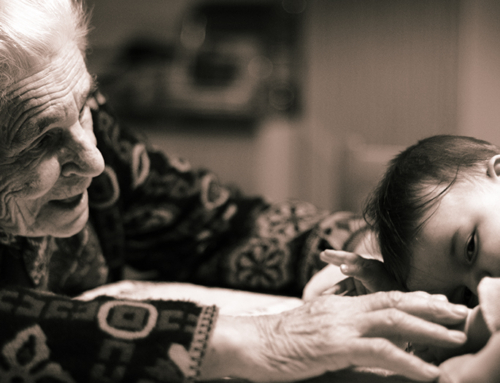By: Laura El Alam
Navigating the Path of New Muslims
When we are new to Islam, there is a great deal for us to learn about our faith. It can seem overwhelming, at first, to grasp everything Islam requires of us. The five daily prayers — including the specific movements we must make and the words we recite in Arabic — take quite a bit of practice to master. Additionally, we converts often have numerous questions about our new Islamic lifestyle, including dress code, diet, interaction with others, spiritual obligations, and more.
Finding the Right Mentor in Islam
While a great deal of information can be found in books, articles, and tutorials, the most pleasant and efficient way to learn how to practice Islam is with a patient and willing mentor. But how does a new Muslim find a mentor, and what characteristics should that person ideally have?
Where to Start
Contact Your Local Mosque
The best place to begin your search for a mentor is at your nearest mosque or Islamic Center. Many have a system in place for new converts, including classes, workshops, and a volunteer network of mentors. While some mosques don’t have those resources, they still might be able to help. Find someone in a leadership position (like an imam, a board member, an active volunteer, or a teacher/lecturer) and ask if they can help you find a mentor to help you learn the basics of Islam.
Contact WhyIslam
At this link, you can request to be connected with an experienced and willing Muslim brother or sister in your area.
What should You Look For in a Mentor?
Someone of The Same Gender
Female converts should have a woman for a mentor, and males should have a man. The reasons for this are twofold: 1. Relationships between men and women are always navigated carefully in Islam so that respect, propriety, and modesty are their defining characteristics. A mentor/mentee dynamic between the sexes can easily veer off into an inappropriate direction. 2. There are Islamic rules, rights, and obligations that are particular to each gender. Many Muslims are unaware of the rulings that apply specifically to the opposite sex, cannot relate to their situation, and therefore are unable to answer many important questions.
Someone Who is Patient and Eager to Help
In my experience, these qualities are even more important than sheer knowledge of Islam. A person can be scholarly but not an effective guide, and vice versa. It is easy to look up information online, so the point of having a mentor is to form a beneficial bond of sisterhood or brotherhood with that person. The ideal adviser will be someone who enjoys teaching new Muslims and combines knowledge with a kind and gentle approach.
Someone Who Understands and Respects the Convert’s Experience
Some people might think the only qualified mentor is the person who was born into a Muslim family and has practiced Islam all their life. However, this is not necessarily the case. Converts can make excellent mentors, especially since they fully understand the drastic life changes involved in conversion and the potential challenges involved. Individuals’ adherence to Islam, understanding of its core message, and positive attitude matter much more than their total years of living as a Muslim.
Someone With Excellent Character
The ideal mentor will be a walking example of Islam. Even though no one is infallible and none of us practices Islam perfectly, a sincere Muslim will be identifiable by their overall honesty, kindness, patience, and humility. True believers do their best to uphold Islam’s requirements such as the five daily prayers, modesty in dress and behavior, trustworthiness, integrity, and moderation. Good mentors, while fallible, will be engaged in a constant quest for self-improvement for the sake of Allah. If you see a Muslim constantly gossiping, backbiting, expressing racist or bigoted views, purposely ignoring basic Islamic guidelines, or acting in a dishonest manner, then they are not ready to be a mentor.
Someone Who Has No Ulterior Motive
A good mentor will desire nothing more than converts’ peace and success with their Islamic journey. He or she will be a patient and understanding advocate who provides spiritual support and practical advice. A mentor should be a friend and guide, but not a potential spouse or a prospective in-law who is grooming a new convert for a possible marriage.
Seeking Guidance and Offering Support in the Islamic Journey
If you are a new Muslim who wishes to connect with a mentor, I urge you to be courageous enough to ask for help. Think of it this way: you are giving someone a wonderful opportunity to share their knowledge and strengthen their own faith. I urge you to persevere until you find the right guide for you and remember to ask Allah SWT to facilitate your search.
On the other hand, if you are a Muslim with a firm foundation in your faith and a patient, positive attitude, then please consider volunteering as a mentor at your local mosque. Allah promises a great reward for those who help facilitate others’ journey to Islam.
Raised in a Midwestern Catholic family, Laura El Alam became a Muslim in 2000. She is a prolific writer whose work has been published in various magazines. Laura is the founder of Sea Glass Writing & Editing www.seaglasswritingandediting.com and runs the Facebook page The Common Sense Convert which aims to provide a beneficial online forum for Muslim women.
Got Questions?
We have Answers. Get in touch now.








